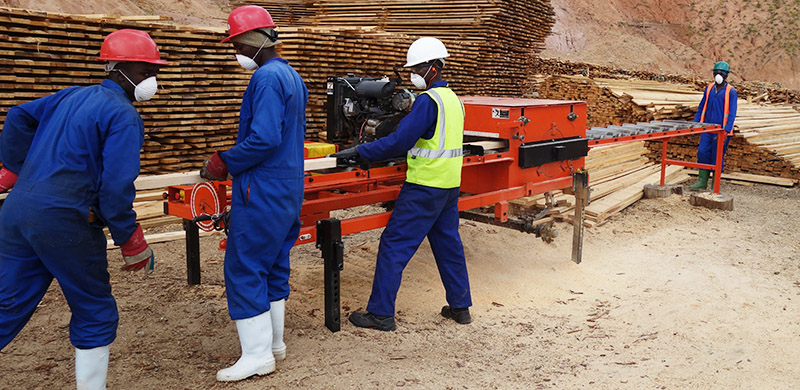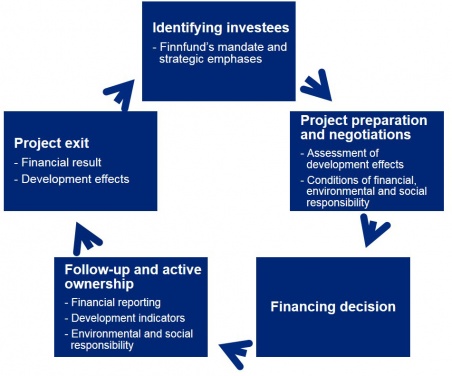Responsible business in developing countries

Sound, responsible business is a vital prerequisite for sustainable development. Profitable enterprises create jobs and yield the tax revenues that facilitate public sector activities and help to reduce the dependence of developing countries on external aid. Companies generate export earnings and offer consumers cheaper or better services and products. By operating responsibly and using resources efficiently, well-run enterprises also protect the environment.
Finnfund invests in the projects of Finnish companies and their partners, as well as other projects that produce significant improvements in the state of the environment or support the economic and social development of the host country. Finnfund compiles data annually on the development impacts it has achieved.
Finnfund focuses on renewable energy and sustainable forestry but we also finance projects in other sectors.
Alongside direct investments we can make indirect investments via private equity funds. We also finance banks and financial institutions. Our finance is provided on market terms and depends on the risk profile of each project.
To receive Finnfund finance, a project must be profitable and implemented in a responsible way. It must promote the economic and social development of developing countries. The projects that we accept for planning must be in line with the Finnfund Act and in accordance with Finnfund’s strategy.
Project planning
In the initial phase of the project planning process, we ensure that the project meets our fundamental requirements on environmental and social responsibility. These requirements include the performance standards of the International Finance Corporation, the part of the World Bank Group that specialises in private sector financing. An assessment of environmental and social responsibility also helps to set the financing terms to be negotiated with the customer.
Finnfund requires good social responsibility from the projects it finances and does not tolerate corruption, tax evasion or money laundering in its projects. Environmental performance and labour conditions are two of the matters that must meet international standards, even if local legislation is less stringent or entirely non-existent.
Geographical and sectoral distribution
At the end of 2016 Finnfund had a portfolio of 167 investments although a small number of projects accounted for more than one investment. Of these investments 122 were in low-income and lower-middle-income countries, which is a good achievement for the company’s development policy mission. The number of enterprises or other investees totalled 120.
Most co-investment with Finnish companies was in middle-income developing countries such as India, China, and Ukraine, as well as in Russia. In low-income countries Finnfund largely finances infrastructure, generally together with other development finance institutions, but even these projects often involve Finnish companies as technology suppliers.
There were 112 direct investments and 55 indirect investments via private equity funds and financial institutions. Finnfund’s direct investments were spread over many different sectors, from engineering workshops to plantation forests, and from pharmaceuticals to power generation.
During the year 21 new financing decisions were made, worth a total of EUR 151.9 million.
About 52 percent of last year’s new financing decisions, or 62 percent of their value, were climate-related, used to produce renewable energy, to prevent deforestation, to reduce consumption of power and raw materials, or to improve the opportunities of poor people to adapt to the challenges of climate change.
More information:
Key figures
Development effects
Responsibility

